- Home
- Gail Godwin
Evenings at Five Page 5
Evenings at Five Read online
Page 5
“We’ll take this slowly,” said Father Paul, and waited while Christina went through another cycle of wild crying and gasping. While her body was succumbing to these paroxysms, her mind coolly registered how impatient she had been all her life and how she projected this impatience onto others: Surely Eliza must be dying to get home to Jack, and Father Paul has had a long day and wishes I would pull myself together so we could get on with it and he could go home and have his supper.
But Father Paul gave no signs of wanting to get on with it. When he did begin reading the burial service and selections from scripture, it was in an alert, rather surprised way, as though he were coming upon the words himself for the first time.
It was new for Christina not to follow along in the prayer book, rushing ahead with her eyes. She allowed the words to pass over or soak into her as they saw fit.
Bud crouched solemnly on the rug, very much a part of the gathering. At one point, he arose, stretched sinuously, and ambled off to the kitchen, from where they could hear him slowly crunching his dry food. Presently, he returned and took up his former pose, a neatly folded cat.
“Hope that is seen is not hope,” Father Paul read from Romans. “Why hope for what is already seen? But if we hope for what we do not see, we wait for it with eagerness and patience.”
Now, on this December night early in the eighth month after Rudy’s death, Christina, in his chair, raised his/her glass (what is the sound of one glass toasting?) and took a determined but rational sip of the Gigondas “Oratorio.”
“To hope,” she said, gazing at her own absent place on the sofa. “What did you see when I was sitting over there, two yards away from you?”
“I saw you, my love. In your varied manifestations. In your married vanifestations.”
“I’ve missed you. There were things left unfinished. I thought we would have the summer together. You said, ‘We still have some more time together.’ Your last words to me. Did you really think so?”
“I hoped so.”
“I went home and read a novel. I was never able to finish it afterward. It’s not her fault, but I won’t ever read that writer again. I read until two or three in the morning. You were sinking but I didn’t know it. I’m glad you had Edward, the same nurse who was with you eleven Aprils ago when, as you put it, ‘I made my maiden voyage to intensive care.’
“Edward said I could call him at home and he told me all I wanted to hear, which was everything. How delighted you were to see him when he came on duty. How you filled him in on the intervening years, our trip to Sweden for my book, the last time we traveled together, what you had been writing, the operas and musical plays we wrote together.
“ ‘But then,’ you told him, ‘my life slowly changed and I could do less and less.’
“Around ten, you had chest pains. The heart doctor ordered a drip of nitro and some morphine. You settled down and slept some. Toward morning, your oxygen started dropping, more diuretics were administered, a blood test showed dialysis was needed. Your kidney doctor was on vacation, so his associate came and you signed the papers. Then your blood pressure began to drop, your breathing got shallow, they administered more diuretics, and when the doctor was putting in the catheter for dialysis, your heart rate dropped and you lost consciousness: not enough oxygen to the brain, Edward explained. They called code blue, the crash cart came, all your numbers were sky high, the pH of your blood changed, and Edward and the other nurses realized at a certain point in the resuscitation that they had just lost you.
“ ‘We were devastated,’ he said. ‘We stood around the bed holding hands. We were in a daze. This man was affecting all of us. His energy was still there.’
“ ‘He’s a man I’ll never forget,’ said Edward. ‘I was surprised that a man so sick could maintain such a high level of consciousness right to the end.’
“You were conscious enough to bring your life story to completion, with Edward as the listener.
“At seven-thirty the phone woke me. I picked it up, expecting your rumbly voice, instructing me what to bring, sweater, socks, in case they were keeping you another day.
“But a stranger asked for me by name, and when I said, ‘Speaking,’ he identified himself as the doctor on duty at the ICU. ‘I have bad news,’ he said. ‘Rudy didn’t make it.’
“ ‘Do you mean he’s dead?’ For those few seconds I guess I was still clinging to the thinnest semantic thread: ‘didn’t make it’ maybe meaning you’d lost consciousness or not responded, something just short of hopeless, but on this side of death.
“But no.
“Then I heard myself asking, ‘Is it all right if I come and see him anyway?’
“When I got to the ICU, a nurse came out, weeping, and asked me to wait a few more minutes outside your room—four-fifteen—while she finished ‘getting you ready.’ I stood with my back to the nurses’ station, facing your partially closed door, hugging my purse to my chest and reciting Hail Marys to regulate my breathing. I could catch glimpses of her moving efficiently back and forth from bed to sink to waste container, cleaning up after the crash cart exertions. Then she said I could come in.
“Your skin was still warm. Your cheeks and chin were stubbled with fresh growth and there was a bandage around your neck with a trace of dried blood. Your body in the blue-and-white patterned hospital gown was more rotund than before, obviously swollen, as was your face, which gave it the fullness of complacency.
“You weren’t there, anybody could see that. But you had left behind an expression of . . . how to describe it? Superiority? Bemusement beyond caring? A distanced, tranquil amusement? Satisfaction at a task completed?
“The nurse went out, and I touched your face and then your hands, which could bring forth such complicated sounds, and which, for the first time, did not respond to my touch with a squeeze or a grasp. I looked away, then back, half expecting I could surprise you into a change of expression.
“It was my first experience of looking at you when I couldn’t influence how you looked back at me.
“Now I have to make the crossover between image and presence. The funny thing is, I can still hear the essential you, though I miss having you in my sight. I, the visual one, now have to rely on sounds.”
Coda
I used to try to be original,” you said about your work, not long before you died. “Now I try to be clear and essential.”
About Bach, you remarked, at the end of a day when you’d had another transfusion, “He has order and stability, qualities one doesn’t always have in one’s life. Yet he’s not predictable, sentimental, or personal.”
And then there was the night, in our last months together, when I sat over there on the sofa and regaled you at length about all my fears: about my work, about the future, about my fear of losing you.
Later, after I was upstairs in bed, and you were in one of your commutes between the refrigerator and a late movie in your study, you called up to me:
“Hello? Are you still awake?”
“Yes,” I called back. “Why?”
“Bud is sitting right outside your door. He’s protecting you from all evil and danger.”
By Gail Godwin
NOVELS
Evenings at Five
Evensong
The Good Husband
Father Melancholy’s Daughter
A Southern Family
The Finishing School
A Mother and Two Daughters
Violet Clay
The Odd Woman
Glass People
The Perfectionists
SHORT STORIES
Dream Children
Mr. Bedford and the Muses
NONFICTION
Heart: A Natural History of the Heart-Filled Life
A Ballantine Book
Published by The Random House Ballantine Publishing Group
Text copyright © 2003 by Gail Godwin
Illustrations copyright © 2003 by Frances Halsband
All ri
ghts reserved under International and Pan-American Copyright Conventions. Published in the United States by The Random House Ballantine Publishing Group, a division of Random House, Inc., New York, and simultaneously in Canada by Random House of Canada Limited, Toronto.
Ballantine and colophon are registered trademarks of
Random House, Inc.
www.ballantinebooks.com
Library of Congress Cataloging-in-Publication Data is
available from the publisher upon request.
eISBN: 978-0-345-46363-0
v3.0

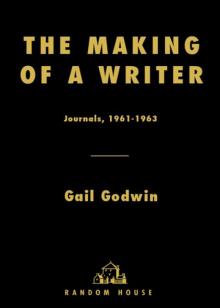 The Making of a Writer
The Making of a Writer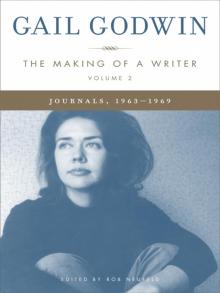 The Making of a Writer, Volume 2
The Making of a Writer, Volume 2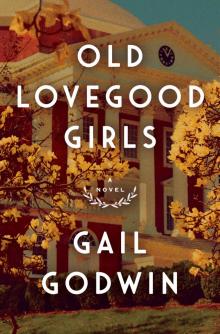 Old Lovegood Girls
Old Lovegood Girls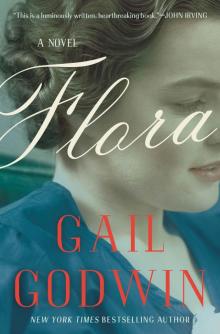 Flora
Flora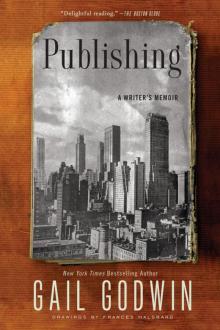 Publishing
Publishing The Finishing School
The Finishing School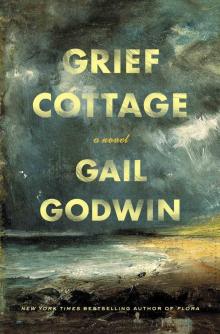 Grief Cottage
Grief Cottage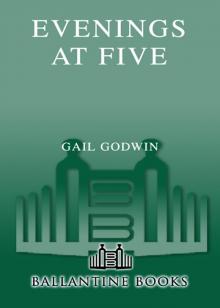 Evenings at Five
Evenings at Five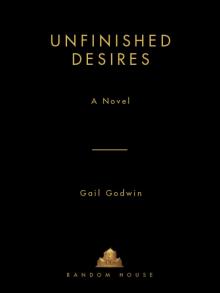 Unfinished Desires
Unfinished Desires